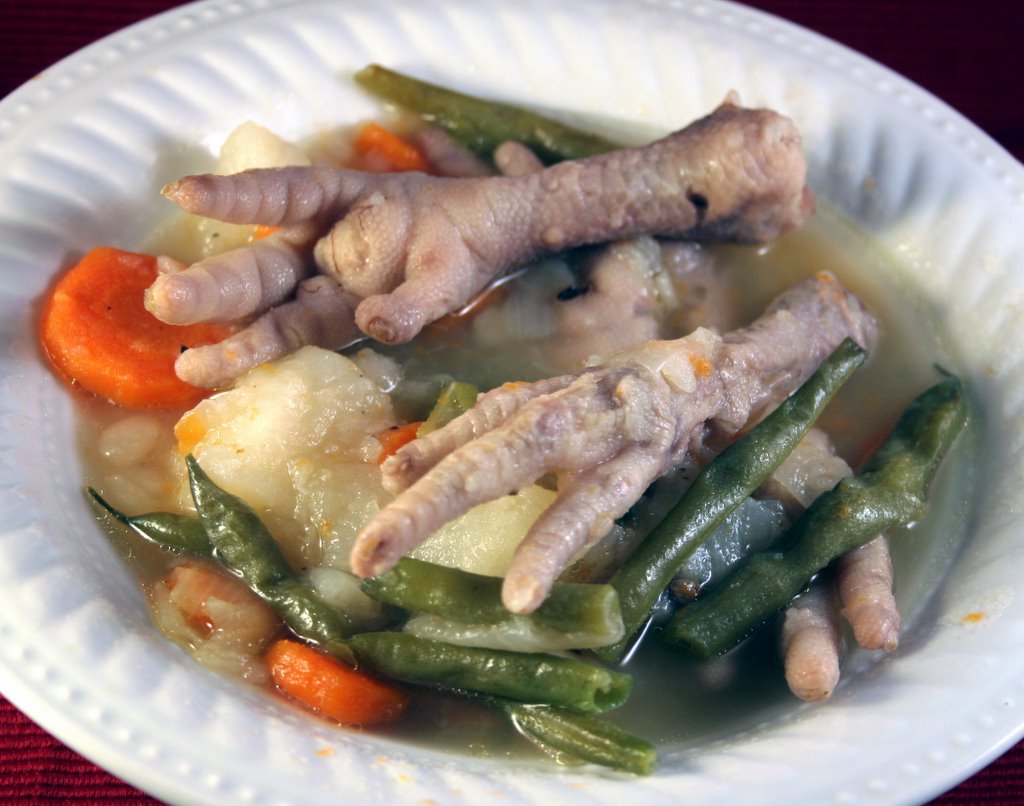
Chicken Feet Stew
Chinese students know who to call when they want homemade food.
By Yuqi Zha
It was 12 :05 a.m. Jackie Liu, a Chinese freshman at Bryn Mawr College, was still working in front of her desk. Words flowed out of her fingertips into the document on her laptop screen. The page count at the bottom showed she has finished 3 pages—2 more pages to be done for this assignment, which was due in 9 hours.
Some strange noises distracted her attention. Her stomach was growling.
At the same time, WeChat (a social media app like FaceBook popular among Chinese) messages were popping up on her phone screen relentlessly. It was time for Liu to do something about her hunger.
Liu opened WeChat and entered a WeChat group named Pangpang Lulu, which is the origin of all those messages. There are a couple of hungry Chinese students like Liu in that group, needing some energy to fight against their homework in this long lonely night.
The sole purpose of this group, now having 38 Chinese students, is to place orders collectively at a private Chinese home kitchen in Philadelphia, called Pangpang Lulu, which provides them with Chinese cuisines that cannot be found elsewhere.
Pangpang Lulu was opened on the 1st of February, 2018, located in an apartment near Temple University. Pangpang Lulu doesn’t have a storefront—it offers take-out and delivery services only, including late-night delivery, covering all regions in Philadelphia.
It is the only place that specializes in making spiced stew dishes, which are popular traditional dishes in China. Without the rental cost for a storefront, the prices of its dishes are affordable to students, with entries ranging from $10 to $13, and it quickly became popular among Chinese students in Philadelphia.
“We started Pangpang Lulu solely out of love for spiced stew dishes,” said Leslie Mou, one of the co-owners of Pangpang Lulu, who is also a junior at Temple University. “We think it is a shame that we can’t find such delicious Chinese dishes in Philadelphia.”
Mou came from Chengdu, the capital of Szechwan, where spiced stew dishes are very popular —and very hard to make. The key to success is the spiced soup base that is used to stew the meats for hours. It usually contains more than 10 different Chinese spices and even Chinese medicines.
In China, each restaurant specialized in making spiced stew dishes has its own recipe for the soup base, which determines the different smell and taste of the dishes. Like the recipe for Coca-Cola, the recipe for the soup base is the core trade secret of those restaurants.
The most common spiced stew meats are chicken feet, pork feet, pork ears, pork tails and other animal internal organs, which people from other countries usually dislike. But the Chinese love these stews.
